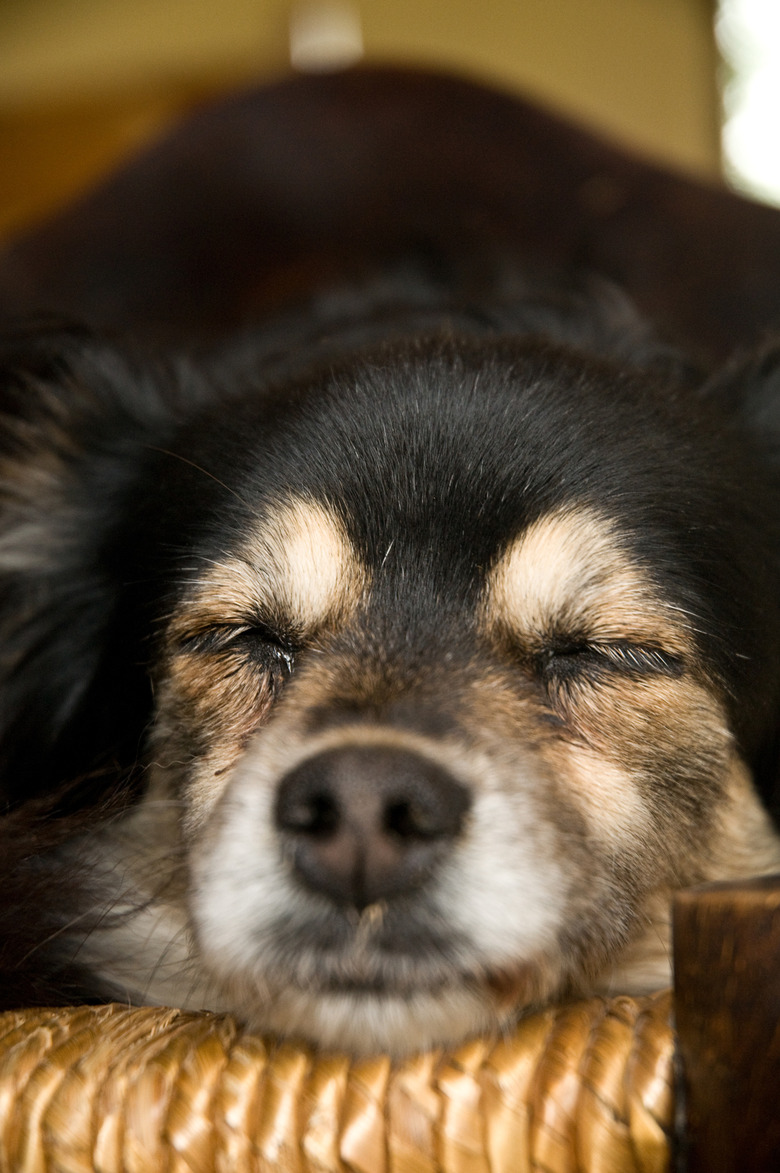What Does It Mean When Your Dog Whimpers While Sleeping?
If your dog whimpers, cries, shakes, twitches, or otherwise makes noises while sleeping, it's usually due to dreaming and not something about which to be concerned. However, as a loving dog parent, you may worry that the dog is experiencing a stroke, heart attack, or seizure. Although that's probably not the case, it's always good to know the signs of serious illness.
Your dog whimpers while dreaming
Your dog whimpers while dreaming
As owners of dog breeds that whine a lot know, whimpering when dogs are awake may mean they are in pain, they want or need something, or they are bored, but if your dog whimpers while asleep, you don't have the benefit of looking into his eyes to see that he is not in danger or pain.
When your sleeping dog whimpers, which can occur in all dog breeds, you may be alarmed and wonder what is going on. To make it even more perplexing, dogs may twitch or move while dreaming and even growl. You might assume they're having a nightmare, but since they can't talk about their dreams afterward, we really don't know what they're dreaming about.
Dogs sleep about half of the day, with puppies and seniors sleeping even more, so chances are good that you may hear your dog whimpering and see his actions for yourself during the daytime. Dogs dream during the rapid eye movement (REM) part of their sleep cycle, which occurs about every 30 minutes for small dogs and every 45 minutes for larger dogs. Large dogs may dream for five to 10 minutes of that time, while small dogs dream for about two minutes. During this time, their breathing becomes irregular and shallow, and their muscles may twitch.
Do not disturb
Do not disturb
It's best not to disturb sleeping dogs even if they are whining, shaking, or twitching. While it may be tempting to try to comfort your dog, it can be frightening to be awakened from sleep by your touch or voice. A shocked dog may even bite when awakened suddenly, even if the dog is not prone to biting. Dogs, like people, work out situations and fears in their dreams, so waking them during the dream keeps them from resolving whatever they are dreaming about.
Rule out serious illness
Rule out serious illness
Dogs having seizures look very different from sleeping dogs. If they were previously conscious, they often fall over and become unconscious, unlike dogs that lie down on their own to sleep. Often, their legs are positioned straight out, and their muscles are very stiff. They will probably be unable to control their bladder or bowels, and they usually drool excessively, much more than they would while dreaming. If you believe your dog is having a seizure rather than dreaming, note how long the seizure lasts to relay that information to your vet.
Dogs having a stroke often lose control of their bladder and bowels as well, and they may vomit; these are not signs of dreaming. Twitching is not a typical sign of stroke while it is occurring, and afterward, the dog may have paralysis in one or more limbs. Mucous membranes, such as their inner eyelids or gums, may be dark red from being deprived of oxygen. Also after a stroke, dogs may be disoriented, have balance issues, tilt their head, and have abnormal facial expressions, none of which occur after dreaming.
If you are concerned that your dog may have had a seizure or stroke, call your vet as soon as possible. Write down all the symptoms you see that are not normal for your dog so you can answer the vet's questions with as much information as possible.
